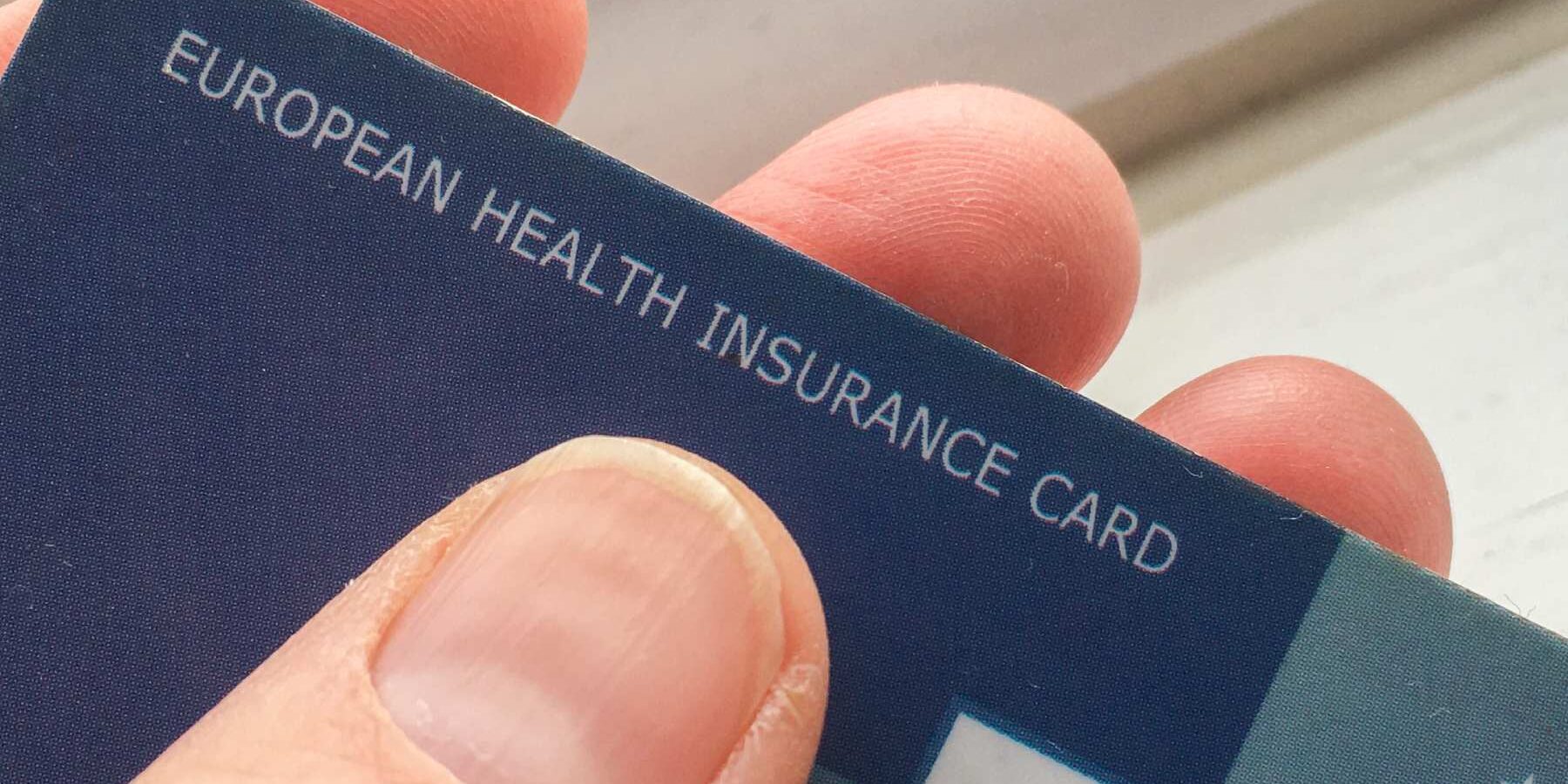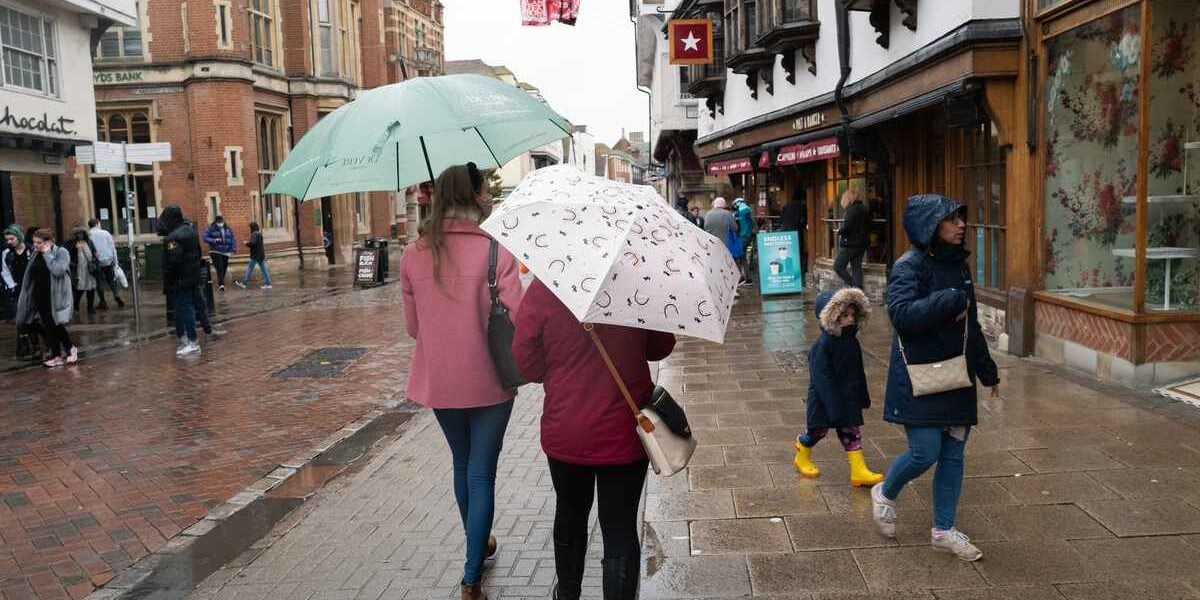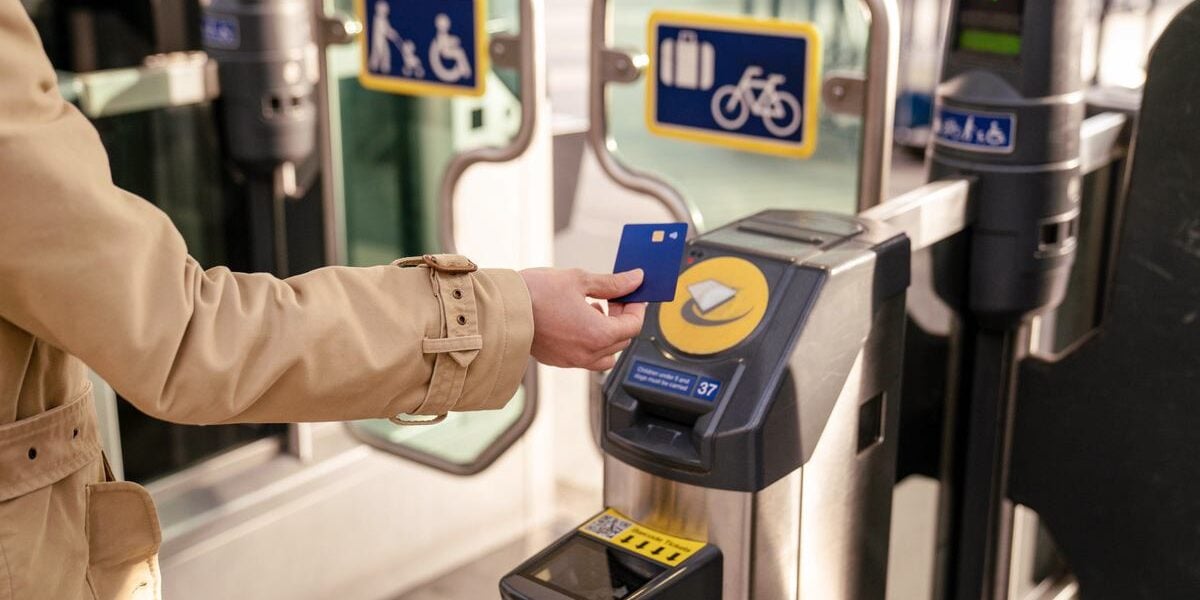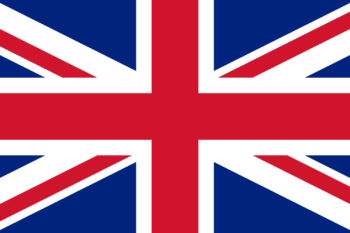
Discover the Best Coverage for Your Trip to the United Kingdom
 Planning your dream trip to the UK? Whether you want to experience the hustle and bustle of London, the natural beauty of Wales, or the magic of Stonehenge, the right UK travel insurance will ensure you have the adventure of a lifetime without worrying about mishaps like lost luggage, medical emergencies, or travel delays.
Planning your dream trip to the UK? Whether you want to experience the hustle and bustle of London, the natural beauty of Wales, or the magic of Stonehenge, the right UK travel insurance will ensure you have the adventure of a lifetime without worrying about mishaps like lost luggage, medical emergencies, or travel delays.
To help you choose the best coverage for your journey, this article breaks down what’s included, how much it typically costs, and how to pick a plan that fits your need. We’ll also share top health and safety tips to make your visit even more memorable and stress-free.
Planning your dream trip to the UK? Whether you want to experience the hustle and bustle of London, the natural beauty of Wales, or the magic of Stonehenge, the right UK travel insurance will ensure you have the adventure of a lifetime without worrying about mishaps like lost luggage, medical emergencies, or travel delays.
To help you choose the best coverage for your journey, this article breaks down what’s included, how much it typically costs, and how to pick a plan that fits your need. We’ll also share top health and safety tips to make your visit even more memorable and stress-free.
Do I Need Travel Insurance for the UK?
Travel insurance isn't mandatory for visitors to the UK, but it is highly advisable. While the country's National Health Service (NHS) covers most residents, short-term visitors don't have automatic NHS coverage.
As a result, they should consider purchasing coverage to protect themselves against unexpected medical expenses during their stay.
Get a Free Quote for UK Travel Insurance
Traveling to the UK? Compare top-rated travel medical plans and get instant coverage tailored to your trip.
No matter how well you plan your international trip, unexpected setbacks can happen at any time. For instance, you might trip and sprain your ankle while rushing to catch the Tube in London, contract norovirus from a hotel buffet and need hospitalization, or slip on a rainy cobblestone street in Edinburgh and fracture your wrist.
These incidents could lead to staggering medical bills if you need treatment and don't have coverage. For example, the cost per day for a patient in intensive care is at least £2,745 (around $3,551 USD).
Coverage for High-Risk Activities
If you're planning to take part in high-risk activities like hiking in the Scottish Highlands, rock climbing in Snowdonia, surfing in Cornwall, or mountain biking in the Lake District, having the right coverage becomes even more essential.
These activities come with a higher risk of injury, so it’s crucial to ensure your policy includes adventure or extreme sports coverage.

Beyond medical emergencies, other travel mishaps can also disrupt your trip. Your luggage might go missing at Heathrow Airport, leaving you without essential items and forcing you to replace lost belongings.
You could miss a connecting flight in another city, requiring an unexpected hotel stay and a costly rebooked flight. Theft is another concern, especially in busy tourist areas like London’s West End or Edinburgh’s Royal Mile.
Comprehensive travel insurance not only covers medical emergencies but also provides financial protection against lost luggage, trip cancellations, and theft, ensuring a stress-free and enjoyable trip.
Read More: Is Travel Insurance Worth It?
Travel Insurance for Common Risks in the UK
Understanding the most common travel risks in the UK can help you prepare for a safe and stress-free trip. Here are key risks to consider:
Road Accidents
If you're used to driving on the right side of the road, switching to the left in the UK can be challenging. Roundabouts and narrow country roads can also be difficult to navigate. Consider a policy that includes coverage for accidents and rental car damage.
Weather-Related Delays
UK weather is unpredictable, with frequent rain, fog, and occasional snow disrupting flights, trains, and road travel. A policy that covers weather-related cancellations and delays can help you rebook flights or accommodations without extra costs.
Theft
Pickpockets and phone thieves often target tourists, especially in crowded areas like London’s Tube, Edinburgh’s Royal Mile, or major tourist attractions.
A travel policy that includes theft coverage can help you recover financially and replace lost valuables, allowing you to continue your trip with minimal disruption.
Lost or Delayed Luggage
Major UK airports, including Heathrow, Gatwick, and Manchester, are some of the busiest in the world, increasing the likelihood of delayed or lost baggage. A policy that covers baggage loss or delays can help you replace essentials while waiting for your belongings.
Outdoor Activities
The UK offers more than just city experiences – it boasts stunning landscapes that are perfect for outdoor adventures. You can hike the breathtaking trails of the Lake District, ski in the Scottish Highlands, or surf the waves in Cornwall.

Don’t forget to apply for your UK ETA! Traveling to the UK in 2025? Be sure to apply for the UK Electronic Travel Authorization (ETA) before your trip. It’s mandatory for travelers from visa-exempt countries, and without it, you won’t be allowed to board your flight!
However, unpredictable weather and remote locations can make these activities riskier. If you're planning adventure sports, consider adding an "extreme sports" rider to your policy or choosing an adventure travel plan that covers injuries and emergency evacuations. This ensures you’re protected whether you're trekking rugged coastlines or exploring remote countryside.
Healthcare Expenses
The NHS provides excellent care to UK residents, but visitors aren’t fully covered. You may need to pay upfront for non-urgent treatment, and in emergencies, you could be billed up to 150% of the actual costs. The right travel health insurance can help cover these expenses, preventing unexpected medical debt.
Terrorism and Civil Unrest
The UK has a history of transport strikes, large-scale protests, and security threats that can cause disruptions, especially in large cities like London and Manchester.
These disruptions can potentially impact your travel plans, whether through delays, cancellations, or changes in local safety conditions. In rare cases, terrorism-related incidents or civil unrest can also cause significant travel interruptions.

To safeguard your trip, consider choosing a policy that includes coverage for trip cancellations or interruptions caused by terrorism, security alerts, or civil unrest.
This will help you recover costs if your travel plans are disrupted by unexpected events beyond your control, such as transportation cancellations, airport closures, or emergency evacuations.
What Does UK Travel Insurance Cover?
UK travel insurance protects travelers against unexpected financial losses and disruptions during their trip. It covers both medical expenses and travel-related incidents, ensuring financial security throughout your journey.
While the exact coverage will depend on the policy you choose, key benefits typically include:
- Medical Expenses and Emergency Treatment – This covers medical costs if you fall ill or get injured while traveling.
- Emergency Medical Evacuation and Repatriation – Pays for transportation to the nearest medical facility or back home if necessary.
- Trip Cancellation and Interruption – Reimburses non-refundable costs if your trip is canceled or cut short for covered reasons.
- Lost, Stolen, or Delayed Luggage – Provides compensation for lost, stolen, or delayed personal belongings.
- Travel Delay – Covers additional expenses for meals, accommodations, and transport due to unexpected delays.
- Repatriation of Remains – Covers the cost of returning a deceased traveler’s remains to the UK.
Optional Add-Ons:
- Extreme Sports and Adventure Activities – Some policies let you add an "extreme sports" rider to cover high-risk activities like skiing, snowboarding, scuba diving, and bungee jumping, providing protection for medical emergencies, equipment loss, and activity-related accidents.
Read more about the various benefits of Comprehensive Travel Insurance and how to find the best plan based on your needs.
What’s Not Covered in UK Travel Insurance?
While UK travel insurance offers valuable protection during your adventure, it’s important to understand that standard policies often exclude certain situations.
- Pre-existing medical conditions: Any condition diagnosed before your trip unless explicitly covered in your policy. Be aware that attempting to hide a pre-existing condition could result in losing your travel coverage.
- Non-emergency medical treatments: Travel medical insurance usually only covers emergencies, not routine checkups or cosmetic surgery.
- Injuries from high-risk activities: If you want to go skydiving, bungee jumping, or skiing, you won't have coverage unless you add an adventure sports rider.
- Self-inflicted injuries: Accidents should be covered. But if you intentionally hurt yourself, any resulting injuries likely won't be covered by your policy.
- Alcohol- or drug-related incidents: If you get hurt because you were drinking or taking drugs, your travel policy could limit or exclude coverage.
- Losses from illegal activities: Your policy may not cover any incident, from injuries to being robbed, that results from illegal activities.
Understanding these exclusions will help you choose the right coverage and avoid surprises while traveling in the UK. But even with this coverage, it’s important to adhere to safety guidelines to ensure your claims are valid.
How Much is Travel Insurance for the UK?
The cost of a travel plan for visitors to the UK varies based on several factors, such as age, health, level of coverage, and trip duration. Adding extra coverage for high-risk activities, such as adventure sports, can further increase the cost of your plan.
Age is a major factor, as older travelers typically pay higher premiums due to increased health risks. Insurance providers view them as higher risk, resulting in higher rates, especially for those over 65.
For example, a 25-year-old traveling from the US to the UK for ten days might pay between $8 and $20 for a travel medical plan, depending on their overall maximum limit and chosen deductible. Meanwhile, a 55-year-old would typically pay around $30 to $55 for the exact same coverage and duration.
Since policy prices can vary, it's best to shop around and compare travel insurance plans to find one that fits your budget and coverage needs.
What Affects the Cost of Travel Insurance for the UK?
Several factors affect the cost of UK travel insurance. Here is the breakdown of cost factors:
- Premiums: The amount you pay for the policy, either in a lump sum or periodically (e.g., weekly or monthly).
- Deductibles: The amount you pay out-of-pocket for covered expenses before your insurance kicks in.
- Co-pays: A fixed amount for certain services, like doctor visits or prescriptions. Co-pays are usually separate from your deductible.
- Covered Services: Typical coverage includes emergency medical expenses, evacuation, trip interruption, baggage loss, and flight delays. Make sure to check the fine print to confirm that your needs are covered.
- Exclusions and Limits: Be aware of any exclusions (services or situations not covered) and policy limits (the maximum amount the insurance will pay).

Save on insurance by choosing a higher deductible, which lowers premiums as the insurer’s risk decreases. Ensure your policy covers essentials like repatriation, medical evacuation, emergency treatment, and trip cancellation. This is especially important for the UK, where medical costs for visitors can be high.
How to Choose the Right Coverage for the UK
By now, you should have a better understanding of travel insurance terms and how they impact the cost of different policies. Here’s what to keep in mind when choosing the best policy for you:
- Assess Your Health and Needs: If you or a travel companion has a pre-existing condition, check that your policy won't exclude any medical coverage. Also, check what emergency medical care it covers.
- Consider What Activities You Might Do: If you plan to participate in high-risk activities like rock climbing, surfing, or scuba diving, choose a policy that includes adventure sports coverage or offers an add-on for those activities.
- Your Trip Length: Longer trips may require more comprehensive health and trip cancellation coverage to ensure full protection.
- Destination-Specific Risks: Pickpockets and phone snatchers can be common in popular UK tourist spots such as London, Edinburgh, and Manchester. Theft coverage can offer added peace of mind when visiting crowded areas, major landmarks, or bustling markets.
- Understand Coverage Limits: Review the coverage limits of each policy, especially for critical aspects like emergency evacuation and medical treatment. If there are exclusions, ensure the policy offers adequate protection for your needs. Comparing quotes from different providers is a great way to find the best value for the coverage you need.
Find the Best Travel Plan for Your UK Journey!
Don't settle for the first quote! Compare travel insurance plans to find the best value based on your trip details and needs.
The Best Travel Insurance for the UK
Below are our top recommended travel plans for the UK, each tailored to cover a range of needs – from medical emergencies to trip protection and more.
The Best Travel Health Insurance for the UK
The Atlas Travel Insurance Plan is a flexible and affordable option for visitors to the UK. Atlas provides excellent customer service and a comprehensive range of benefits, even with budget-friendly plans.

Atlas Travel Insurance
- Emergency medical, evacuation, repatriation benefits
- Choose between the basic and more extensive coverage
- Meets Schengen visa insurance requirements
- 24/7 worldwide travel and emergency medical assistance
This plan includes coverage for pre-existing conditions, ensuring you receive necessary care while abroad. For those planning UK-based adventures, Atlas also offers coverage for high-risk activities and emergency evacuation options.
GeoBlue's Voyager Plan is an excellent choice for U.S. citizens visiting the United Kingdom. It is affiliated with Blue Cross Blue Shield and provides access to a premium network of doctors and hospitals worldwide.

GeoBlue Voyager Plan
- For U.S. citizens up to age 95
- Includes pregnancy coverage, baggage loss, trip interruption & more
- 24/7/365 service and assistance
GeoBlue also offers 24/7 customer support, telemedicine, and prescription drug coverage, which is especially important in the UK, where Medicare doesn't cover most medical expenses abroad, including outpatient medications. The plan is particularly well-suited for older U.S. citizens, providing comprehensive coverage for seniors traveling abroad.
The Best Trip Cancellation Insurance for the UK
With Trawick Safe Travels AnyReason plan provides U.S. citizens and residents visiting the UK with flexibility and financial protection against unexpected changes to their trip itinerary.

Safe Travels AnyReason
- Available to US residents traveling within the United States and abroad
- 100% Trip Cancellation and Trip Interruption Coverage
- Emergency Evacuation and Repatriation
- 75% of Cancel for Any Reason (CFAR) is included within 7 days of trip deposit
The plan offers one of the best Cancel for Any Reason (CFAR) benefits at no additional cost. Trawick will reimburse you for up to 75% of your prepaid, non-refundable trip expenses if you have to cancel your trip for reasons beyond the standard covered events.
World Nomads Travel Insurance is a top choice for non-U.S. citizens seeking trip cancellation coverage. Policyholders can recover non-refundable expenses such as flights, accommodations, and prepaid activities.

World Nomads Travel Insurance for Trip Cancellation
- Trip cancellation and interruption benefits included
- Emergency medical transport and repatriation
- Baggage and gear cover
- Optional Cancel For Any Reason (CFAR) coverage available for U.S. citizens/residents (Explorer and Epic Plans)
In addition to trip cancellation coverage, World Nomads provides coverage for over 200 adventure activities, emergency medical expenses, emergency evacuation, and repatriation, as well as protection against lost or stolen baggage and personal belongings.
How to Prepare for Your Visit to the UK
Preparing for your trip to the UK involves more than just booking your flight and accommodations. It’s essential to ensure that your health and well-being are well taken care of before you travel. Here are some key steps to tick off your to-do list.
Medical Preparation for Travel to the UK
Before heading to the UK, it’s a good idea to schedule an appointment with your healthcare provider. They can offer advice on managing your health while traveling and ensure you're up-to-date on any necessary vaccinations.
You may also want to refill prescriptions, so you have enough medication for the duration of your trip. Be mindful that medical marijuana is not permitted in the UK, so ask your doctor about potential alternative medications if needed.
Additionally, consider any health risks related to travel, such as flu season, or any conditions you might be prone to while abroad, like traveler’s diarrhea. Consult your doctor about preventive measures or medications.
What Vaccinations Do I Need When Traveling to the UK?
There are no mandatory vaccinations for entering the UK. However, it’s advisable to make sure you're current on routine vaccinations such as measles, chickenpox, and the flu.
Some travelers opt for additional protection with vaccines for Hepatitis A and B, depending on their health history and activities planned during the trip. Always check with your doctor to determine what's best for you and anyone else traveling with you.
Read More: Vaccine Requirements for Traveling Abroad
Can I Bring Medications to the UK?
As a non-UK resident, you’re allowed to bring up to a three-month supply of medication, provided it’s prescribed to you. You’ll need to have a letter from your doctor detailing your medication, dosage, and the dates of your trip.
The letter must also include your prescribed doses and the medication’s strength, and it needs to be signed by the prescribing doctor.
However, if your medication is classified as a controlled Schedule 1 drug in the UK, such as many cannabis products, you will face stricter regulations. Always check with your doctor to verify if your medication falls under this category before traveling.
How to Get Medical Care as a Visitor in the UK
If you experience a medical emergency while in the UK, dial 999 or 112 to request an ambulance. You'll be taken to the nearest hospital's A&E (Accident & Emergency) department, where you'll receive an assessment.
Emergency treatment at NHS-run hospitals is free, but if you are admitted as an inpatient, you may face additional charges. In some cases, you may face up to 150% of the usual cost for any subsequent care. If you don't pay this debt, you may be denied entry to the UK in the future.
Non-Emergency Medical Care and GP Visits
For non-emergency medical care, you can visit a GP (General Practitioner), but as a visitor, you will need to pay upfront for services.
While you won’t be able to register as a resident, you may still be able to book an appointment or visit a GP who accepts private patients. If you have travel health insurance, your insurer can help locate a GP who accepts your coverage.
The EHIC and Reciprocal Healthcare Agreements
If you’re a resident or long-term legal resident of an EU country, you can still use the European Health Insurance Card (EHIC) to access certain healthcare services in the UK. Even after Brexit, the EHIC remains valid for EU citizens, providing access to healthcare on the same terms as UK residents.

In addition to the EHIC, the NHS has reciprocal healthcare agreements with some countries, including Australia and New Zealand, which may provide coverage in the UK.
However, the EHIC and these agreements won't cover everything, such as the cost of medical evacuations back to your home country. For situations like this, you will need travel health insurance that includes medical evacuation coverage.
Walk-In Clinics and Urgent Care
Walk-in clinics or urgent care centers are ideal for minor injuries or illnesses and usually offer faster service than NHS facilities, which are known for having long wait times, even for emergencies.
With travel health insurance, you'll also gain access to private urgent care clinics and hospitals, allowing you to receive medical attention more quickly and efficiently.
Read More: The UK Healthcare System
The UK has previously experienced terrorist attacks, and terrorism remains an ongoing risk. The following travel advisories and alerts for the UK will help you stay informed about current threat levels while visiting the country:
- U.S. Department of State: Provides up-to-date travel advisories, including information on the security situation, local laws, and health advisories to help travelers prepare for their visit to the UK.
- Smartraveller.gov.au (Australia): Offers guidance for Australians traveling to the UK, including safety advice, visa information, and natural disaster alerts.
- Government of Canada – United Kingdom Travel Advice: Provides Canadians with travel advice, including current risk levels and tips for staying safe and healthy during their visit.
- Singapore Ministry of Foreign Affairs – United Kingdom: Offers visa information, safety and security advisories, and general travel tips for Singaporeans planning to visit the UK.
- World Health Organization (WHO): Provides health-related travel advisories, including updates on disease outbreaks and public health risks in the UK, such as COVID-19 and other health concerns.
Additionally, U.S. citizens can enroll in the Smart Traveler Enrollment Program (STEP) to receive the latest warnings and updates directly from the U.S. State Department.
Read More: A Guide to Travel Advisories, Warnings, and Alerts
Emergency Contact Information in the UK
If you have an emergency in the UK, these are the numbers to call:
- 999 and 112 are the emergency numbers for police, fire, and medical emergencies
- 101 is the non-emergency police number
- 111 is the non-emergency number for medical assistance
- Text 61016 or call 0800-40-50-40 to reach British Transport Police in non-emergency situations
Embassies in the UK
U.S. Embassy
Phone: 020-7499-9000
Address: 33 Nine Elms Lane, London, SW11 7US
Canadian Embassy
Phone: 020-7004-6000
Address: Canada House, Trafalgar Square, London, SW1Y 5BJ
French Embassy
Phone: 020-7073-1200
Address: 21 Cromwell Road, London, SW7 2EN
Australian Embassy
Phone: 020-7379-4334
Address: Australia House, Strand, London, WC2B 4LA
New Zealand Embassy
Phone: 020-7930-8422
Address: Kinnaird House, 1 Pall Mall East, London, SW1Y 5AU
10 Safety Tips for Visiting the UK
The UK is generally a safe destination for travelers, ranking 34th out of 163 nations in the 2024 Global Peace Index. This index considers factors like crime rates, political stability, and militarization to assess a country’s overall peace.
However, while the UK is largely safe, it does have a slightly higher crime rate compared to other European nations. Therefore, it's important to take basic precautions, especially if you're traveling solo.
Whether it's your first time visiting or you're returning for another trip, these tips will help you stay safe, avoid common risks, and ensure a trouble-free journey.
1. Prepare for All Kinds of Weather
The UK weather is notoriously unpredictable, often switching from sunshine to rain to biting winds in just a few hours. To make the most of your trip, it's essential to be prepared for a wide range of weather conditions.

In winter, the average temperature ranges from 0°C (36°F) to 7°C (45°F), so you'll want to pack a warm coat, hat, and gloves to stay comfortable. Summer temperatures are generally cool, ranging from 9°C (48°F) to 18°C (64°F), but higher temperatures are becoming more common.
Be ready to layer up if it’s cool, and bring lightweight clothing so you won't swelter during warmer spells. No matter the season, an umbrella is necessary for a trip to the UK! Make sure it's sturdy enough to withstand strong winds.
2. Don't Rely on Air Con!
While the weather in the UK can be unpredictable, summer temperatures have been rising in recent years. During a heatwave in the summer of 2022, parts of the UK recorded temperatures above 40C for the first time ever.
While not every summer will be that extreme, it's becoming more likely that you'll encounter hot weather if you're visiting during the summer months.
In many countries, air conditioning is the go-to solution when temperatures soar. However, in the UK, air conditioning isn't as common. So, if you're staying in a small hotel or B&B, don't expect to have air conditioning to help you cool off.
Take precautions to stay comfortable during a heatwave. Close the curtains or blinds in your hotel room to block out the sun and keep it cooler. Stick to air-conditioned pubs and cafés when it's hottest.
Bring a small rechargeable fan that you can carry with you during the day and use at night. Remember to pack lightweight, breathable clothing for daytime outings and a more comfortable night's sleep.
3. Be Aware of Security Risks
While the UK has experienced terrorist attacks in the past—such as metro bombings, knifings, and vehicles being driven into crowds—the likelihood of being directly affected is very low. In fact, the UK ranked 41 on the Global Terrorism Index (GTI) for 2024.
That said, it’s important to stay aware and take measures to protect yourself, such as being mindful of your surroundings, especially in crowded areas like train stations or museums. If you notice anything suspicious, report it to security or the police. If you think there's immediate danger, call 999.
Visit the UK's MI5 security service website to stay informed about current threat levels. If an attack occurs, try to stay as calm as possible. Follow instructions from emergency responders about where to seek shelter. The BBC will provide reliable updates during such events.
4. Drink Responsibly
The UK is somewhat renowned for its drinking culture, where socializing over a pint (or several) is a key part of life, especially at the local pub.
While drinking is an important social activity, it's common for some people to go beyond moderation and indulge in binge drinking, particularly on weekends or holidays. Many opt for rounds with friends, which can lead to heavier drinking as the night goes on.
However, it's important to drink responsibly for your safety and enjoyment. Instead of full pints, consider ordering a half-pint of ale or cider or alternate between alcoholic and non-alcoholic drinks. This way, you can still enjoy the pub experience while staying aware of your surroundings.

Staying sober also helps you keep a watchful eye on your drink. Never leave it unattended, as drink spiking can happen anywhere, including in the UK.
Also, remember that even if you're drinking in moderation, others around you might not be. Be cautious if anyone’s behavior gets out of hand. For example, if a fight breaks out, there’s no need to step in and play the hero. Your safety should always come first.
Finally, keep in mind that if you injure yourself while drunk, your insurance may not cover it, so drinking responsibly ensures both your safety and coverage in case of an accident.
5. Watch Out for Phone Snatchers
While enjoying London’s beautiful gardens and museums, be aware that phone snatching can be a problem for both tourists and locals.
This crime occurs when thieves grab phones from unsuspecting pedestrians, often outside busy spots like train stations, shops, or concerts. The criminals typically make a quick escape on mopeds or bikes with the stolen smartphones.
To stay safe, the Metropolitan Police recommend always checking your surroundings before using your phone in public. Try to text or call quickly when you're outside, then put your phone back in a secure place like your front pocket or purse.
It's also a good idea to enable security features like a keypad lock or the ability to remotely erase data. If the worst happens, you don't want thieves accessing your personal information.
6. Don't Fall for Scams
No matter how experienced a traveler you are, it’s important to stay alert to scams in unfamiliar places. One common scam in the UK is the "shell game," in which participants are asked to follow a ball or pea as it moves under cups. If you find the pea, you win.
You might see other tourists appearing to win and be tempted to join in, but be aware: those “winners” are almost always in on the scam with the person running the game. It’s best to walk away and avoid getting involved. If you do decide to play, you’ll almost certainly lose money.
Another scam that’s growing in popularity involves fake Buddhist monks, who often target tourists in busy areas. These “monks” will place a beaded bracelet on your wrist and then ask for a donation or sometimes demand money in exchange for a “prayer." If someone approaches you this way, it’s best to walk away quickly. If you're alone, seek out other people nearby for safety.
7. Be Aware of Organized Begging
When visiting London or other areas across the UK, you may come across "organized begging." This term refers to groups of criminals who work together to ask people, often tourists, for money.
Some organized beggars put up signs asking for donations, but they might also directly approach people to make demands. Another common occurrence is for beggars to distribute packets of tissues on public transport and then ask for money in exchange.
It's best to ignore these individuals. While there may be genuinely desperate people in need, it’s difficult to distinguish them from organized criminals. Instead, consider donating to reputable organizations like Pathway, which helps provide food and shelter for those in need.
8. Stick to Well-Lit Areas at Night
While the UK is generally a safe destination, some areas can pose greater risks, particularly after dark. To stay safe, always stick to well-lit, busy areas where there are other people around. According to CrimeStoppers UK, crimes are far less likely to occur in places with good lighting and regular foot traffic.
If you can’t avoid a darker route, walk with confidence and purpose, moving quickly through less populated areas. Avoid alleyways, poorly lit streets, and quiet shortcuts, especially in unfamiliar neighborhoods. If you need to check your phone for directions, wait until you’re in a well-lit spot rather than stopping somewhere secluded.
Traveling with a friend is always a good idea, as there's safety in numbers. If you’re heading out alone, let someone know your plans and expected return time. Staying aware of your surroundings and making smart choices will help ensure a safe and enjoyable night out.
Leave the pepper spray at home! While it may seem like a good idea to carry pepper spray for self-defense, don't try to bring it to the UK. Pepper spray is illegal in the UK and is considered a prohibited weapon. If you're caught with it at customs, your trip could be jeopardized before it even begins! If you're concerned about personal safety, carrying a loud alarm is a legal and practical alternative.
9. Use Public Transport Wisely
The UK boasts an extensive public transport system, including trains, buses, and the famous London Underground.
Many cities also offer night buses and 24-hour Tube services, making it easier to get around after dark. While these services are generally safe and reliable, they can get crowded during peak hours, making them prime targets for pickpockets.
To protect your belongings, avoid placing valuables in easily accessible pockets or open bags. Instead, store important items like travel documents, cards, and cash in a secure, zipped compartment. Consider using a crossbody bag or wearing your backpack on your front in crowded spaces such as train stations or packed buses. Stay alert and be mindful of anyone standing too close to you.
Most public transport services in the UK accept contactless payments, including debit/credit cards and mobile apps like Apple Pay and Google Pay, which can be more convenient than purchasing physical tickets.

Traveling by train is a great way to explore the UK, and booking tickets early can help you save money. Advance tickets are available up to 12 weeks before departure, but popular routes often sell out quickly, so plan ahead.
In London, you can also use your contactless credit card, phone, or watch to pay as you go, or top up an Oyster card. Using the same payment method throughout your journey ensures that London Transport will cap your fares, so you won’t pay more than necessary.
Apps like Citymapper, Google Maps, TfL Go, or Trainline can also help you plan your routes efficiently and avoid confusion. If you're traveling late at night and feel unsafe, consider using a licensed black cab, Uber, Bolt, or Free Now for added peace of mind.
Read More: The Best Apps for Living Abroad
10. Keep Health Information on You
It's important to have essential health information on hand in case of a medical emergency, especially when traveling alone. This includes details about allergies, current medications, and any pre-existing health conditions.
While it’s easy to rely on your phone for this information, it’s more likely to get lost or damaged. Instead, consider keeping a physical document or card in your wallet.
If you have serious health concerns, consider investing in a medical alert bracelet or pendant, which can provide essential details in an emergency without the need to search for documents. Include clear instructions for managing health conditions. For example, if you need to carry an EpiPen for allergies or monitor insulin levels due to diabetes, include emergency treatment instructions.
By having this health information accessible, you’ll help medical staff provide the best care in case of an emergency, giving you peace of mind while traveling.
Travel Smart and Stay Protected in the UK
The UK is a fantastic destination to explore. From the stunning Lake District to the historic Royal Mile in Edinburgh, the UK offers endless opportunities for adventure.
However, like any trip, things can sometimes go wrong. That’s why investing in UK travel insurance is one of the smartest steps you can take to protect yourself and your journey.
Ready to Travel?
Compare top-rated travel medical plans and get covered with the best UK travel insurance plan.
Whether it’s a travel delay, illness, or theft, a travel policy ensures you're prepared for the unexpected so you can focus on what truly matters – enjoying your trip.
Take the first step towards stress-free travel. Get a free quote today and find the best coverage for your UK adventure. Safe travels!
Read More
Author: Sara Kettler is a content editor at International Citizens Insurance. She has lived and worked around the globe, spending time in England, Australia, France and Japan. In each new country she’s used local health insurance programs.





